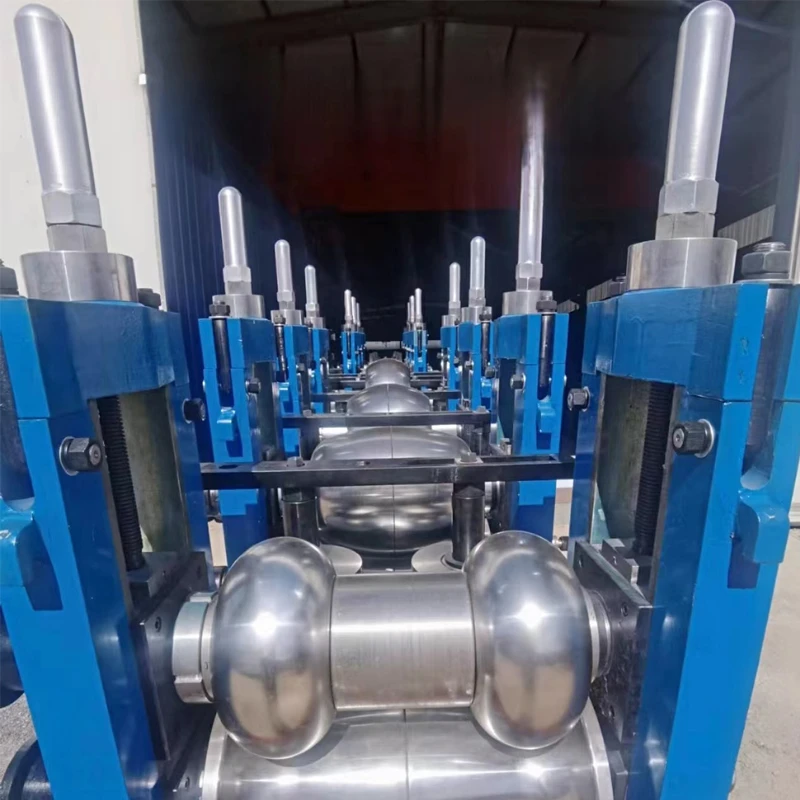Automatic TIG Welding Machine for Efficient Pipe Welding Solutions
Automatic TIG Pipe Welding Machine Revolutionizing the Welding Industry
In the realm of modern manufacturing and industrial processes, welding plays a pivotal role, particularly in the construction of pipelines and various metal structures. Among the diverse welding techniques available, Tungsten Inert Gas (TIG) welding stands out for its precision and versatility. The advent of automatic TIG pipe welding machines has revolutionized this essential aspect of engineering, promising enhanced efficiency, quality, and safety in the welding process.
What is Automatic TIG Welding?
Automatic TIG welding is an advanced welding technique that utilizes a non-consumable tungsten electrode to produce the weld. It requires a shielding gas, typically argon, to protect the weld area from atmospheric contamination. This method is particularly well-suited for welding thin-walled materials, which are commonly found in the piping industry. The automatic TIG welding machine integrates computer-controlled systems that automate the welding process, offering consistent weld quality, improved speed, and enhanced control over parameters.
Advantages of Automatic TIG Pipe Welding Machines
One of the main advantages of automatic TIG pipe welding machines is their ability to maintain high precision in welding. Unlike manual welding processes, which can be prone to human error, these machines ensure that settings such as amperage, travel speed, and gas flow are consistently maintained. This results in superior welds that meet stringent quality standards, which is crucial in industries such as oil and gas, pharmaceuticals, and food processing, where integrity and reliability are paramount.
Furthermore, automatic machines are designed to enhance productivity. The automation of repetitive tasks reduces the time required for welding and allows skilled welders to focus on more complex and intricate aspects of the job. This increase in efficiency not only helps meet production deadlines but also reduces labor costs, making it a financially viable option for businesses.
Another significant benefit is the enhanced safety that automatic welding machines provide. In manual welding operations, workers are often exposed to hazardous fumes, high temperatures, and intense light. By automating the process, the machine operates in a controlled environment, reducing the risks associated with manual welding tasks.
automatic tig pipe welding machine

Applications of Automatic TIG Pipe Welding Machines
The applications of automatic TIG pipe welding machines are vast and varied. Primarily, they are used in the fabrication and installation of pipelines in various industries. This includes oil and gas pipelines, water supply systems, chemical processing plants, and power generation facilities. The precision of TIG welding ensures that the welds can withstand the pressures and stresses involved in transporting liquids and gases.
In addition to piping applications, these machines are also gaining traction in the manufacturing of precision components for aerospace and automotive industries. The ability to create strong yet lightweight welds is essential in these high-stakes fields, where failure is not an option.
Future Trends in Automatic TIG Welding
As technology continues to evolve, the future of automatic TIG pipe welding machines looks promising. Integration with artificial intelligence and machine learning is on the horizon, allowing for adaptive welding processes that can learn from previous welds and optimize parameters in real-time. This advancement could lead to even greater efficiencies and higher standards of quality assurance.
Moreover, improvements in wireless technology and remote monitoring systems will enable operators to oversee the welding processes from a distance, facilitating better control and data analysis. This transition towards smart welding solutions will further streamline operations and enhance the overall effectiveness of welding practices.
Conclusion
In summary, automatic TIG pipe welding machines represent a monumental advancement in the welding industry. With their ability to produce high-quality welds, improve safety, and boost productivity, these machines are becoming indispensable tools in various sectors. As technology progresses, the capabilities of automatic welding machines will only continue to expand, setting new standards for precision welding in the years to come.
-
High Frequency Straight Seam Welded Pipe Production Line-BzZhou Xinghua Machinery Equipment Manufacturing Co., LTD.|line pipe steel&welded gas pipeNewsJul.30,2025
-
High Frequency Straight Seam Welded Pipe Production Line-BzZhou Xinghua Machinery Equipment Manufacturing Co., LTD.|High Precision&Automated SolutionsNewsJul.30,2025
-
High Frequency Straight Seam Welded Pipe Production Line - BzZhou Xinghua Machinery Equipment Manufacturing Co., Ltd.NewsJul.30,2025
-
High Frequency Straight Seam Welded Pipe Production Line-BzZhou Xinghua Machinery Equipment Manufacturing Co., LTD.|Precision Welding, High EfficiencyNewsJul.30,2025
-
High Frequency Straight Seam Welded Pipe Production Line|BzZhou Xinghua|Precision Welding&EfficiencyNewsJul.30,2025
-
High Frequency Straight Seam Welded Pipe Production Line - BzZhou Xinghua|Precision Engineering&EfficiencyNewsJul.30,2025


